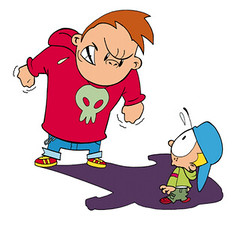AP Literature Terminology Set 3 Flashcards
Terms : Hide Images [1]
| 7419288856 | Invective | denotes speech or writing that attacks, insults, or denounces a person, topic, or institution. |  | 0 |
| 7419305846 | Monologue | which is the speech or verbal presentation that a single character presents in order to express his/her collection of thoughts and ideas aloud. |  | 1 |
| 7419326423 | Proverb | a brief, simple and popular saying, or a phrase that gives advice and effectively embodies a commonplace truth based on practical experience or common sense. |  | 2 |
| 7419332470 | Pun | a play on words in which a humorous effect is produced by using a word that suggests two or more meanings or by exploiting similar sounding words having different meanings. |  | 3 |
| 7419336303 | Sarcasm | a literary and rhetorical device that is meant to mock with often satirical or ironic remarks with a purpose to amuse and hurt someone or some section of society simultaneously. |  | 4 |
| 7419345166 | Soliloquy | a popular literary device often used in drama to reveal the innermost thoughts of a character. |  | 5 |
| 7419351380 | Slang | words that are not a part of standard vocabulary or language and are used informally. |  | 6 |
| 7419361261 | Understatement | a figure of speech employed by writers or speakers to intentionally make a situation seem less important than it really is. |  | 7 |
| 7419366596 | Idiom | a set expression or a phrase comprising two or more words. |  | 8 |
| 7419369594 | Irony | a figure of speech in which words are used in such a way that their intended meaning is different from the actual meaning of the words. |  | 9 |
| 7419377102 | Dramatic Irony | a useful plot device for creating situations where audience knows more about the situations, the causes of conflicts and their resolutions before leading characters or actors. |  | 10 |
| 7419383707 | Verbal Irony | a character uses statement with underlying meanings contrasting with its literal meanings, it shows that the writer has used verbal irony. |  | 11 |
| 7419391520 | Situational Irony | when incongruity appears between expectations of something to happen, and what actually happens instead. |  | 12 |
| 7419409952 | Epistolary novel | a literary genre pertaining to letters, in which writers use letters, journals and diary entries in their works, or they tell their stories or deliver messages through a series of letters. |  | 13 |
| 7419417375 | First person pov | point of view involves the use of either of the two pronouns "I" and "we". |  | 14 |
| 7419427465 | Flashback | are interruptions that writers do to insert past events in order to provide background or context to the current events of a narrative. |  | 15 |
| 7419432485 | Flashfoward | a future event or scene is inserted into the chronological structure of the work. |  | 16 |
| 7419442008 | In media res | a narrative that begins, not at the beginning of a story, but somewhere in the middle — usually at some crucial point in the action. |  | 17 |
| 7419454079 | Limited omniscient pov | a narrator has limited knowledge of just one character, leaving other major or minor characters. |  | 18 |
| 7419485010 | Omniscient pov | when a narrator has knowledge about all the characters in a narrative, it is omniscient or all-knowing point of view. |  | 19 |
| 7419486883 | Linear structure | present stories in a logical manner by telling what happens from one point in time to the next without using flashbacks or flash-forwards and then returning to the present. |  | 20 |
